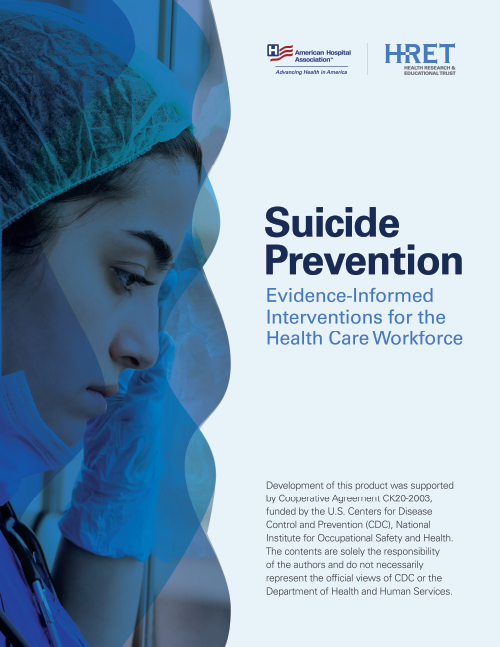
Located in Lawrence, Kansas, LMH Health is a 174-bed hospital that has been serving its community for over 100 years. Through their work with the AHA Suicide Prevention in the Health Care Workforce Collaborative, LMH chose to address behavioral health stigma. The goal of their intervention was to train and educate their employees about behavioral health and improve skills and capability to respond to colleagues who need behavioral health support.
LMH health collected information from their workforce regarding utilization and engagement in behavioral health resources. A few themes they saw through interactions with members of their workforce include chronic feelings of anxiety and the need for greater resiliency. Members of their workforce describe being in a consistent caretaker role; caring for others when at work and caring for their families when at home. Being in a perpetual caretaker role leads to limited time for them to focus on their own emotional needs.
Through their work with the collaborative, LMH health worked to revitalize and expand their Code Lavender initiative. Code Lavender is a crisis intervention tool used to support staff when a stressful event or series of events occurs within the hospital. The code can be called for an individual or for an entire unit. Within LMH, the Code Lavender initiative was historically owned by nursing leadership. Over the past several months, LMH has worked to expand the program to be available to all employees and providers.
A key piece of their project within the collaborative was to develop a robust communication and awareness initiative to share information about the updated Code Lavender program. Communications in the past have been focused on director-level staff and resources were only available to employees on the LMH main campus. Through their work with the collaborative, they expanded Code Lavender resources to all clinics as well as the two external campus sites. They were intentional in sharing information about the program across the system so more individuals can be involved in the implementation of this program and thus there is greater access to associated resources. After the first round of communication, the team at LMH Health hosted a table in the cafeteria to further advertise the revamped Code Lavender program. Their efforts were reinforced through this tabling event as they heard from staff at all levels that they were not only aware of Code Lavender but grateful for the program.
In addition to expanding and revitalizing their Code Lavender program, they have also created a hospital-wide incentive program to encourage employees to complete behavioral health training. This includes Mental Health First Aid, Question, Persuade, and Refer (QPR) Training and Psychological First Aid. They are continuing to review their provider/staff application and credentialing policies and processes.


